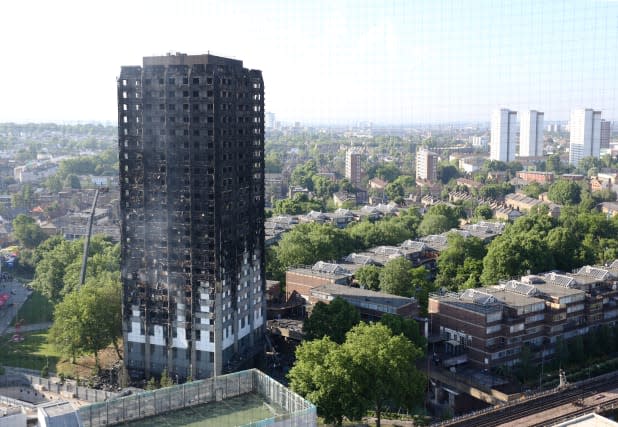Government agency denied 'killer cladding' affected property values day after Grenfell disaster

A Government agency tried to deny a business rates rebate to a food factory with "killer cladding" the day after the Grenfell Tower tragedy, it has emerged.
The Press Association has learned that the Valuation Office Agency (VOA) - funded by the Department for Communities and Local Government (DCLG) - argued at a tribunal on June 15 that the highly flammable cladding, similar to that blamed for the tower block blaze on June 14 which killed around 80 people, did not affect property values.
Food factory Adams Pork Products, in Boston, finally won its appeal following a two-year battle to cut its business rates bill after the tribunal ruled that the VOA was wrong to deny the appeal.

The tribunal found in favour of the firm in July, triggering a seven-year tax rebate for the company.
Its decision also provided further evidence suggesting the fire risks of this cladding - now dubbed "killer cladding" - were known well before the Grenfell blaze.
The tribunal said in its ruling that "awareness of the danger created by cladding comprising flammable compounds was known prior to the material day of 1 April 2010", which is when the business rates were last set.
"But the effect this creates on rental values (and consequentially on rating assessments) was probably less well known," it added.
Adams Pork Factory, whose premises have been vacant since at least April 2010, argued that a number of fires had occurred in premises with this or a similar type of cladding and that insurance was difficult to secure and costly as a result - often at a 300% premium.
The tribunal was told that fire services would not attend blazes with such cladding unless there was a threat to life.
It is thought the decision could lead to an influx of business rates appeals from schools, hospitals, factories and offices whose buildings have combustible cladding, as the Grenfell tragedy is likely to have had an unprecedented effect on demand and values for affected properties.
The DCLG said it was unclear how many factory buildings might have the cladding, although it is working with local authorities to identify numbers.
It added that efforts were focusing initially on residential buildings over 18 metres tall, but said there is an independent review of building regulations across the board which is due to report with interim findings later this year.
A public inquiry into the Grenfell Tower fire kicked off earlier this month.
Scotland Yard revealed shortly after that its criminal investigation into the fire may consider individual as well as corporate manslaughter charges.


